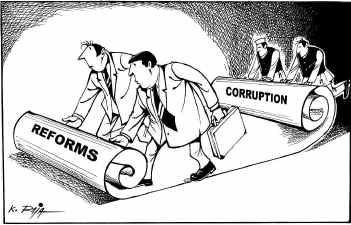By Ernest Osogbue
I was having a chat, over drinks, with friends a few days ago, and as you know, the conversation drifted into the socio-economic situation in our country. Conversations in our country across social spectrum, never veer too far away from the socio-political or the socio-economic realities of the day. One of my friends, an ardent critic of the Tinubu administration, was for the first time full of praise for the efforts of the FCT minister, Nyesom Wike, on road infrastructure in the FCT. The positive adjectives with which he showered Wike, even surprised me. This was a man who always chided me for saying that patience was very important on the part of citizens, in the pursuit of national development.
Anyway, our socio-economic discussions dwelt on the recent increases of tariff on different services provided to citizens. Outside the fuel subsidy removal, which has increased transportation fares by over 500%, electricity, rent, telephone & data services, television subscription, and food items, have all had an upward adjustment of prices. These upward adjustments have also had a knock-on effect on the cost of general goods and services, thereby rendering the recent minimum wage as decreed by the government of non-effect.
Since the advent of the Tinubu administration, prices of goods and services have gone up by over one hundred percent across the board. I’m not an economic analyst, but as a regular citizen, I know what has happened to my purchasing power. I used to fuel my car with less than two hundred Naira per liter of fuel. That cost rose to over a thousand Naira at a certain point, but thankfully, has dropped to just below a thousand Naira per liter recently. Using that as a basis for my calculation, it means that the cost of fueling my car has risen to about 500 to 600 percent since the beginning of the Tinubu administration.
As our discussions continued, and the issue of the minimum wage was raised, the attitude and approach of the government towards minimum wage negotiations was heavily criticized by those of them who have had the opportunity of living in more civilized societies. To them, it was wrong of the government to wake up, and proclaim a certain amount of money as minimum wage, without using data. In their opinion, this runs counter to the proclamation of the government that the welfare of citizens was its paramount raison d’etre.
In Nigeria, the government calculates the minimum wage in reverse. That is; it fixes the minimum wage after deducting other supposed government expenditures. This, according to my friends, was the wrong approach to minimum wage negotiations, if the welfare of citizens is paramount in the government’s agenda. To them, other government expenditure must come after the minimum wage has been agreed upon. In this way, the welfare of working citizens takes precedence, before any supposed government expenditure.
For instance, according to them, why should the entertainment budget of the president, and that of the governors, come before agreements on the minimum wage? Why must the budget for foreign trips at the federal and state levels precede the computation of the minimum wage? In other climes, where the government considers the welfare of citizens as its number one priority, the minimum wage is computed based on the GDP, before other issues are assigned their allocations.
It follows, therefore, that the minimum wage is not simply fixed at random as is done in Nigeria but is arrived at as a product of data analysis. This means that the needs of an average family are usually taken into consideration before the minimum wage is fixed. The government analyzes the needs of an average family, for example, a family of five; father, mother, and three children. The government then takes into consideration the basic needs of this model family, and on that basis arrives at an equitable minimum wage.
How much does this model family require for housing, food, tv subscription, school fees, electricity, water, telephone & data services, etc? These and other factors such as, the cost of living index, the rate of inflation, etc., are considered before an equitable minimum wage is agreed upon. This is because the government realizes that it is not proper to fix a minimum wage that is unrealistic or that impoverishes the people.
In Nigeria, however, this is not the case. Those in government first consider themselves and their own needs, before the minimum wage is computed. That is the reason why there is so much corruption in our country; the government approves an unrealistic minimum wage of #70,000 (seventy thousand Naira), and the average family is left to make up the shortfall. In which Nigeria can seventy thousand Naira take care of the needs of an average family of five?
The government is deceiving itself. Seventy thousand Naira (#70,000), cannot scratch the surface of the needs of an average Nigerian family, how much more meet its needs. As long as the minimum wage remains low, the average worker will always find ways to make up the shortfall, and the government will continue to pay the price, as its efforts are sabotaged. That is the reason why, from the security man at the gate, to the minister at the top floor, everyone is engaged in one activity or the other to meet the shortfall in their salaries. The Nigerian government pretends as if it does not know the truth; that the minimum wage is unrealistic in present day Nigeria. That is why even senior officers look the other way when their subordinates corruptly infringe the rules.
Imagine police officers, soldiers, and other paramilitary personnel who are mostly armed while on duty, why will they not be tempted to use their firearms unlawfully when they cannot afford to buy drugs for an ailing family member or even feed their families?
It is obvious, therefore, that the corruption we have in Nigeria today, is related to the unrealistically low pay package of workers. If the system is to change, and if we are to tackle corruption head on, we must first approve a realistic pay for workers. This would ensure that workers are earning a living wage in the first place, after which, it becomes easier to tackle corruption. For now, with nearly all Nigerian workers involved in one form of corrupt practice or the other, as a way of meeting their basic needs, fighting corruption would remain an uphill task and a losing battle.









